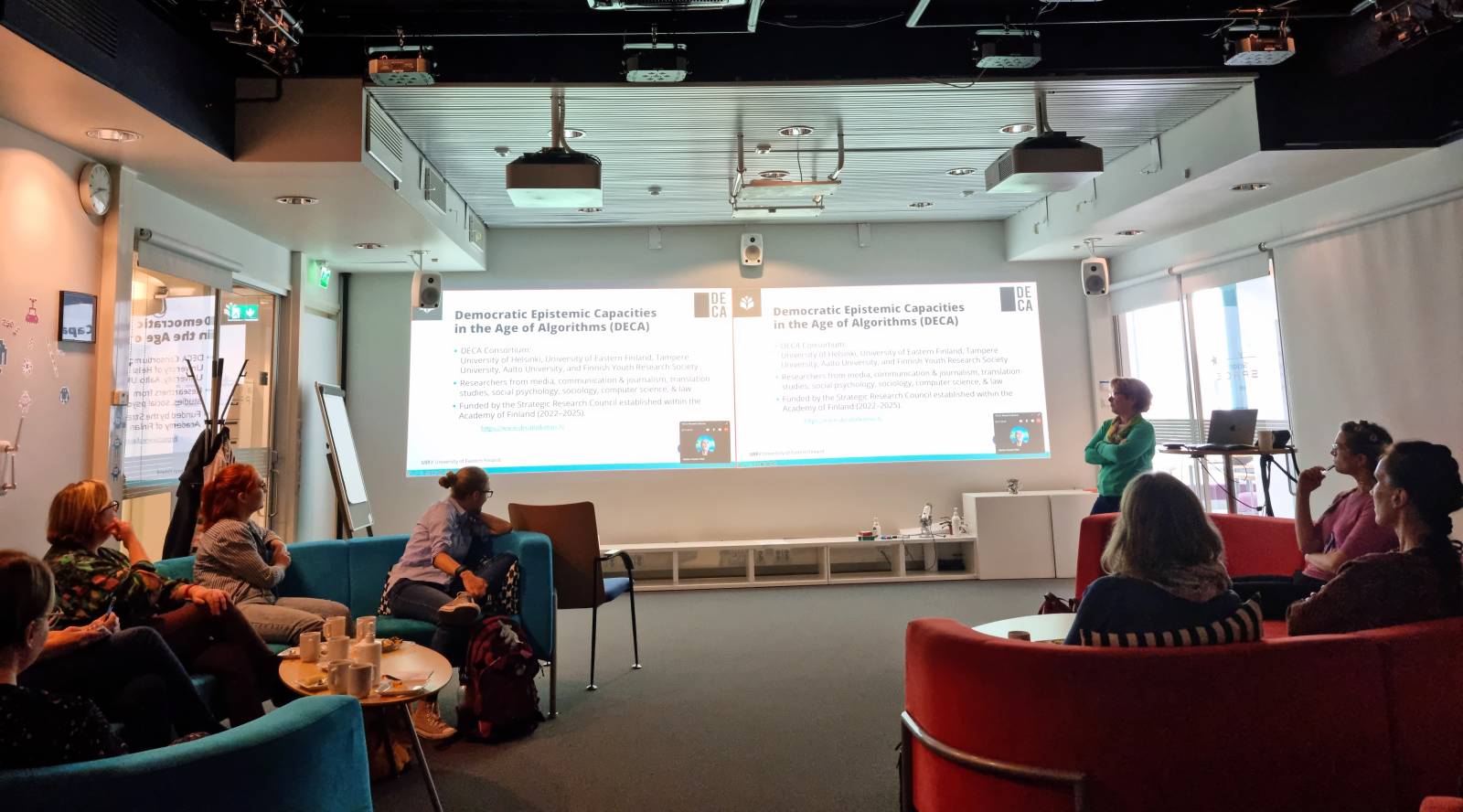On Tuesday, 26th of September, TACCU held a research seminar focusing on newer TACCU researchers as well as guest researchers from other universities. These topics heavily varied from subtitling and gamification all the way to information access.
Each presentation was around 10 minutes, followed up by 10-minute Q&A session. Although, most questions were answered before the midway break or at the end of the seminar.
Following section contains the seminar topics and presenters, followed up by small descriptions for each of the presentations:
Helmi Marttila: Semi-automatic subtitling process at workplaces. Marttila’s presentation discussed the concept of paraprofessional subtitling using automated tools. Her research questions discuss, for example, What kind of experiences and thoughts do the paraprofessional subtitlers have about subtitling and what attitudes there are present concerning subtitling as a task?
Frederike Schierl: Are machine-translated subtitles the future? Schierl’s presentation discussed how an average consumer reacts to different modes of subtitling. Her research questions concern if participants pay more attention to machine translated subtitles and if they need longer to process them.
Mirkka Forssell: Game technologies in enhancing accessibility of older adults learning through games. Forssell’s presentation discussed two different researches. First was accessibility of the applications Kahoot! And Quizizz in the use case of elderly adults. The second research discussed inclusive VR gaming with older adults.
Idastiina Valtasalmi: Frequencies as lexical criteria of easy language. Valtasalmi’s presentation mainly discussed criterion 28 in Easy Finnish Indicator: “The text mainly contains general vocabulary evaluated as familiar to the readers.” General vocabulary was assessed from two points of view: objective frequency and subjective frequency.
Tuija Kinnunen: Access to multilingual information in Helsinki Region during Covid-19 pandemic. Kinnunen’s presentation discussed the ways, languages, and translations of information that was disseminated and accessed during Covid-19 pandemic.
Mary Nurminen: Democratic Epistemic Capacities in the Age of Algorithms. Nurminen’s presentation examined how people belonging to linguistic minorities in Finland access and use information and digital resources as well as how this knowledge is produced by media. In addition, it investigated the usage of machine translation when creating news reports.
Daniel Zhang: Enhancing Global Health Communication in Crises. Zhang’s presentation concerned how to improve multimodal information to be more accessible in order to mitigate health risks. Furthermore, it emphasized that access and translations alone won’t necessarily ensure the accessibility of information.
Johanna Virkki: Passive Radio Frequency Identification Technology. Virkki’s presentation addressed the potential of Radio Frequency Identification (RFID) tags to make everyday tasks and usage of technology more accessible with a cost-effective method.
The entire seminar was incredibly enriching. It truly showcased how versatile the topic of accessibility is. Even on similar topics, the points of view were unique and interesting. The Q&A sessions made it, so audience and other participants were able to join in and ask questions they were wondering about.
Thank you to everyone for the fascinating presentations. We are looking forward to another seminar in the future!

